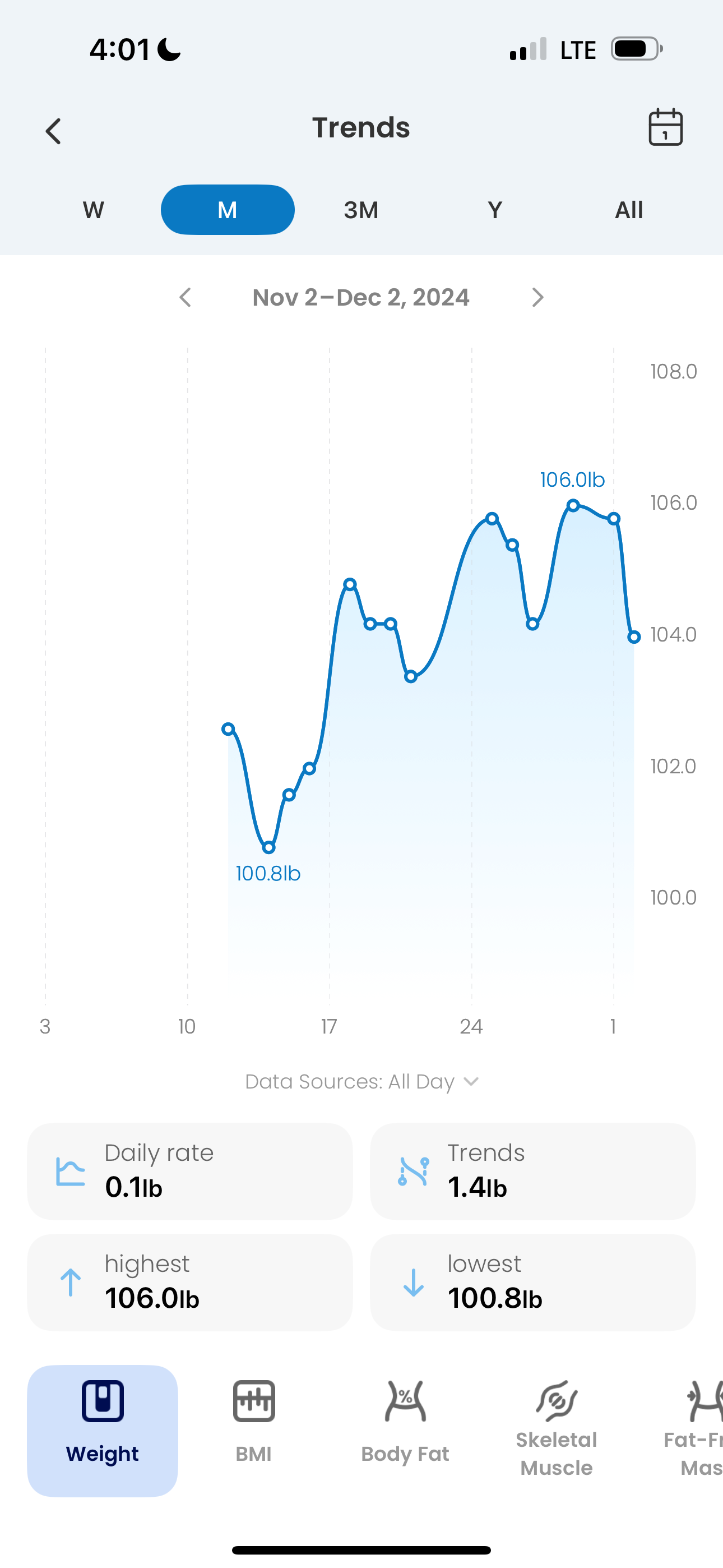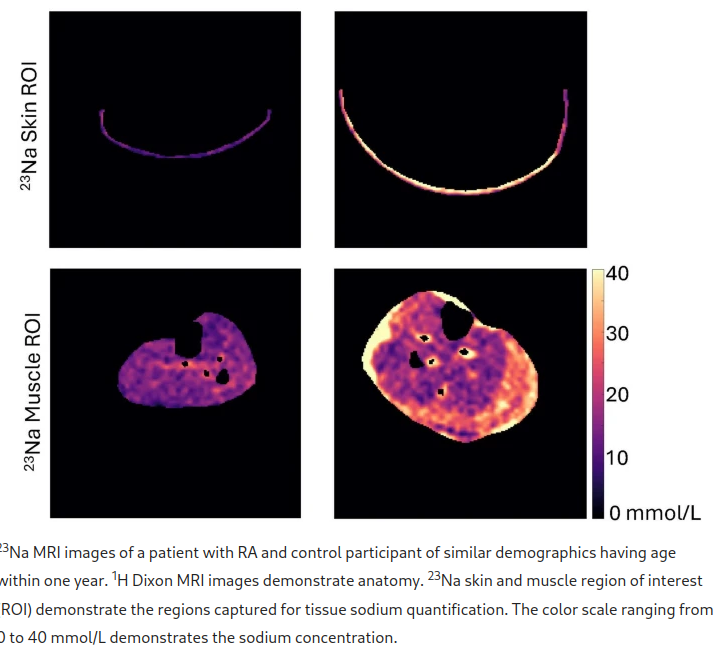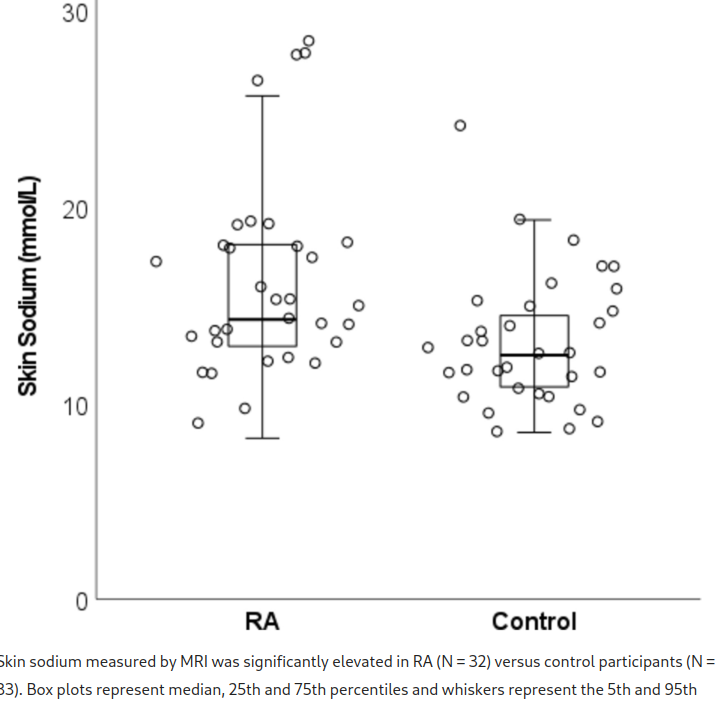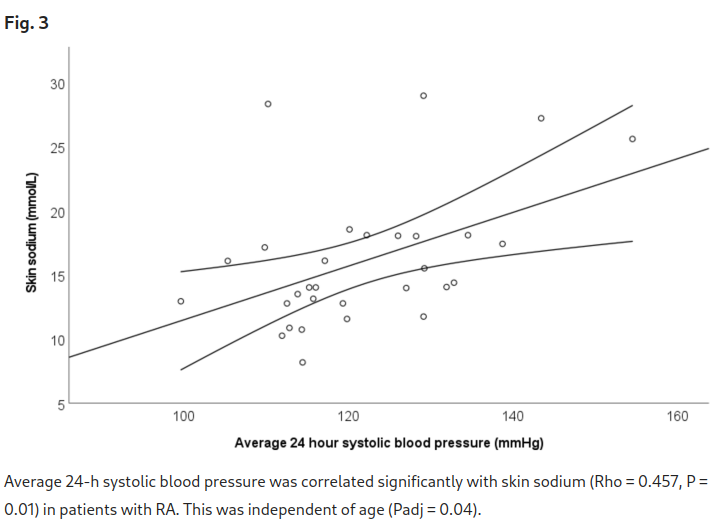I prefer to keep my meals simple for practical reasons. I’m not a multimillionaire with a team to plan, shop for and prepare my food for starters. I think complicated meals/recipes probably become a hindrance after a point for most average people and it just drives people towards buying packaged/processed foods even if they are supposedly healthier versions.
Most mornings I fill a large mason jar with various vegetables, fruits and some seeds to eat later in the day to make getting at least “5 a day” easy. For meals I often do whole grains and or legumes (brown rice cakes, oats and lentil or chickpea pasta are super convenient) with whatever else appeals like nut butters, a veg or fruit, mushrooms, tofu etc. I’m still omnivorous and personally eat whole eggs a few times per week for nutrients that are otherwise harder for me to get, seafood and dairy like Greek yogurt or Swiss cheese. The animal foods are my highest sodium sources but I still have no problem staying at or under 500 mg/day. I understand that it’s arguable whether those are optimal but it works for me personally and is quite an improvement over the carnivore eating I was doing from 2019-2023. I’m able to be vegetarian at least 1/2 the time now. I also regularly put multiple one ingredient foods in my crockpot with Dash or other no salt seasonings early in the day for our evening meal (which my husband calls cheating hahaha) and freeze the leftovers. I still use some canned foods but just chose the no added salt versions. I also buy no added salt tuna and sardines. Fresh seafood is a challenge where I live so I buy frozen and just check the labels for the sodium content which can vary wildly. I opt for fish that is under 80mg/serving.
My point is I truly believe this doesn’t need to be hard or complicated to pull off. Most of the eggs and meat I consume come from two local family farms that have been in the business >120 years that I trust fwiw.
This is also the basis for my diet : keep it simple (almost no seasoning especially salt, no special baking techniques, few ingredients) and repetitive. It seems that keeps my cravings (and thus my calories intake) under control.
Complicated study but which might go against some of the things said previously and which I didn’t realize.
The researchers used SODIUM MRI on the brain and found that it was more predictive of cognitive decline scores than another method:
Lui & Venkatraman et al. report that normalized hippocampal sodium MRI signal were more predictive of Alzheimer’s Disease Assessment Scale Cognitive subscale and Mini-Mental State Examination scores in a nondemented older adult cohort than hippocampal cortical volumes and conclude that sodium MRI may have applications as an imaging neurocognitive marker.
But that it might simply be a marker of cell death and other dysfunction increasing tissue sodium:
Sodium-MRI is a candidate with potential to fulfill this need. Sodium ion concentrations are compartmentalized and tightly regulated in normal cell homeostasis; the transmembrane gradient is actively maintained by the highly energy-consuming sodium-potassium ATPase. Cell death and resulting loss of cell membrane integrity, sodium-potassium pump dysfunction, sodium channel up/downregulation, other interlinked membrane or ionic/metabolic alterations (such as calcium8), and extracellular changes all affect brain tissue sodium values. Preclinical studies also support a role of these metabolic perturbations in the pathophysiology of AD.9-12 In-vivo human sodium-MRI brain studies have furthermore shown differences between control and Ad groups,13-16 stable sodium values across normal ageing,17 and differences in functional disability metrics for Alzheimer’s disease and other neurodegenerative conditions compared to controls.15,16,18,19 Sodium-MRI has also been shown to be predictive of Montreal Cognitive Assessment scores in AD.15,16
What’s the chicken or the egg here, I don’t know…
May I ask how it might go against some of the things said previously sir?
I meant the sodium MRI studies I posted earlier in the thread. It could be other things causing the sodium showing up on the scans. It’s hard to tell anything about the sodium MRI scans now without know more. So we can go by what we know for sure instead. ![]()
Still don’t know what to make of them.
Well I will be perfectly honest and admit I don’t understand it despite trying my best.
I did run across this interesting science news article in my efforts though.
This is Your Brain on Salt
Professor Javier Stern and colleagues recently uncovered surprising new information about how salt intake affects the brain — findings that could have major implications for how we think about cardiometabolic health.
In recent years, scientists have come to discover that inflammation in the brain, also known as neuroinflammation, plays an important role in the development of health problems like obesity, high blood pressure and high cholesterol — which are in turn risk factors for major chronic conditions. As the founding director of Georgia State’s Center for Neuroinflammation & Cardiometabolic Diseases, Distinguished University Professor Javier Stern is working to uncover the mechanisms behind these inflammatory processes and how they contribute to diseases ranging from diabetes to Alzheimer’s.
In a first-of-its-kind study published last fall, Stern and his team used a novel technique to uncover how salt intake affects blood flow deep in the brain. Ninety percent of Americans over the age of 2 consume too much sodium, according to the Centers for Disease Control and Prevention. Your body responds to a high-salt diet with a number of compensatory changes, many of which are poorly understood. These include changes in the brain, which, as Stern has found, may be linked to high blood pressure and even neurocognitive issues.
“This research is an important step in understanding how bodily homeostasis is regulated in the face of salt intake,” says Stern. Here, he shares why the new findings could lead to important breakthroughs in the treatment of cardiometabolic diseases.
https://news.gsu.edu/research-magazine/this-is-your-brain-on-salt-javier-stern
@A_User
Any further thoughts on this? I’m starting to consider adding one just because eating anything besides my own homemade food is pretty unpleasant (and gives me hideous double eye bags for days afterwards!!!). I know that’s vain but I can’t stand it hahaha. I haven’t been able to find any information on if this class of drug helps people tolerate occasional moderate salt consumption better but it seems like it would.
I haven’t looked into it no, if I were dead set on having a relatively significant amount of sodium consumption then I would. At the same time it’s probably hard to know as I’m unsure how such clinical trials would be like, and if using mechanistic studies or similar then it would end up with experimenting (trial and error) yourself, anyway.
Thanks for replying @A_User.
November just ended up being a rough one because of two trips out of town where I didn’t have access to a kitchen for 9 of 20 days so I was brain storming for ways of dealing with the unavoidable salt in those situations. It was all ‘hidden’ sodium in the sense that I tried my best to eat low salt. I even ordered a low sodium menu at a convention I attended but could feel my shoes getting tight on the trip. Here’s what the excess sodium did in such a short amount of time. I don’t care about the weight per se but the rapid change obviously isn’t optimal.
I might just need to ensure I’m not in that situation again.
I’m on a low salt diet. When I cook for myself I never add salt. I’m used to natural taste of food without salt. I get some salt in breads and cheese that I buy. My sodium level per the most recent labs was 135 pushing toward the lower limit of normal. I’m wondering if it could be too low.
Just got my numbers back today. Normal range for sodium 135-146mmol/L. You’re still in there. I use salt on meat and eggs, eat a lot of cheese, my number was 140.
That’s what mine was on my last labs and I’m personally fine with that result. My doctor is as well fwiw.
Big Food vs. Big Pharma.
![]() Can’t stop eating too much
Can’t stop eating too much ![]() GLP-1/GIP agonist
GLP-1/GIP agonist
![]() Can’t stop eating too much sugar
Can’t stop eating too much sugar ![]() SGLT2 inhibitor
SGLT2 inhibitor
![]() Can’t stop eating too much saturated fat
Can’t stop eating too much saturated fat ![]() HMGCR inhibitor
HMGCR inhibitor
![]() Can’t stop eating too much salt
Can’t stop eating too much salt ![]() NHE3 inhbitor?
NHE3 inhbitor?
2014:
The researchers gave the experimental drug to dozens of healthy people for seven days and gave others a placebo. Tenapanor increased the amount of sodium exiting in feces and reduced sodium excreted in urine, indicating that volunteers on the experimental drug absorbed less salt and processed less through their kidneys. Tenapanor itself didn’t show up in the blood of most people taking it, suggesting the compound often goes no farther than the intestines. That’s important because sodium plays fundamental roles in the body and wiping it out elsewhere would be dangerous, Zachos says. No adverse effects were reported in the human tests.
https://www.sciencenews.org/article/experimental-drug-might-get-salt-out
SGLT2 inhibitors mentioned affecting interstitial storage of sodium.
Although interstitial storage of sodium is a new, and for many clinicians unknown concept, it is likely that most clinicians have actively altered interstitial sodium content in their patients last month. Data from 23Na-MRI studies show that everyday treatments such as diuretics, sodium glucose cotransporter 2 (SGLT-2) inhibition and dialysis significantly impact interstitial sodium content [17, 18, 43]. These therapies may be of particular interest in sodium-sensitive hypertension as these subjects are characterized by interstitial sodium accumulation. Until recently, it was unknown whether interstitial sodium accumulation contributes to the cardiovascular risk. Yet, a recent trial demonstrated an association between skin sodium content and an intermediate endpoint, left ventricular hypertrophy. In chronic kidney disease patients, interstitial sodium content was strongly correlated with left ventricular mass, independent of blood pressure or total body overhydration [21]. The observed correlation was stronger than the correlation between total body overhydration and left ventricular mass. Although we need to wait for data from long-term studies investigating the potential cardiovascular risk that is associated with interstitial sodium accumulation, these data are interesting, in particular because interventions are possible with commonly used therapies.
Longitudinal studies evaluating interstitial sodium in children and adolescents using methods such as 23Na-MRI could reveal the direction of causality in the relationship between interstitial sodium and blood pressure, showing if interstitial sodium accumulation starts early in life and precedes, or is implicated in the development of hypertension. This may further strengthen the need for preventative strategies such as dietary sodium reduction in children to prevent the onset of hypertension in adulthood.
Patients with rheumatoid arthritis (RA) have increased hypertension. Tissue sodium may contribute to development and progression of hypertension through immune cell activation. This study aimed to determine if skin sodium content is: 1) higher in RA versus control participants, and 2) associated with blood pressure and disease activity. This cross-sectional study included 32 patients with RA and 33 control participants. Lower leg skin sodium content was measured using magnetic resonance imaging. Ambulatory 24-h blood pressure measurements were obtained, and disease activity was assessed by Disease Activity Score-28 for RA with CRP (DAS28-CRP). Skin sodium content was higher in RA versus control participants (14.22 [12.82, 18.04] vs 12.41 [10.67, 14.55] mmol/L), p = 0.005. Every 1 mmol/l increase in skin sodium was associated with a 1.05 mmHg (95% CI 0.29, 1.82 mmHg, p = 0.009) increase in average 24-h systolic blood pressure in patients with RA, but this relationship was not present in control participants. Skin sodium was not associated with DAS28-CRP or its components. Skin sodium is increased in RA versus control participants and is correlated with 24-h and diurnal systolic blood pressure in patients with RA but not in control participants. Skin sodium content may help explain increased hypertension in patients with RA.
For many years, excess sodium was thought to cause hypertension solely through its osmotic effect in the intravascular space33. However, sodium accumulates in the extracellular matrix (ECM) of the skin in particular, and in other tissues such as muscle34. The result is a reservoir of osmotically inactive, but immune-active sodium35. Monocytes and macrophages migrate to sites of higher salt concentration where they take in the sodium from the interstitium36. The sodium-laden macrophages are proinflammatory and promote vasoconstriction and sodium retention37. These findings have led to a paradigm shift, in which the accepted theory in electrolyte and fluid physiology seems an oversimplification and the relationship between dietary sodium intake and blood pressure is more intricate than was believed33,38.
Nature, Dec, 2024.
https://www.nature.com/articles/s41598-024-83873-8
Regulation of sodium ion channels in the heart and kidneys may also be a way in which SGLT2i produce their cardiorenal benefits. For example, evidence suggests that dapagliflozin may help to reduce blood pressure by improving the sodium balance [90]. The sodium-hydrogen exchanger-3 (NHE3) in kidneys mediates sodium reabsorption following renal glomerular filtration [91,92,93]. Reduced NHE3 activity in the proximal tubule following treatment with SGLT2i leads to decreased sodium reabsorption followed by lowering of glomerular pressure, and reduction of blood and tissue fluid volume. Sodium-hydrogen exchanger-1 (NHE1) is also thought to play an important role in the pathogenesis of HF [91]. NHE1 activity is raised in HF, and its inhibition decreases susceptibility to severe ventricular arrhythmia, reduces contractile dysfunction and limits tissue death/damage both when blood supply to the heart muscle is insufficient (ischaemia), and when it subsequently returns (reperfuses) [94]. Benefits of SGLT2i on HF have been suggested to be mediated by inhibition of sodium-hydrogen exchange in the heart via NHE1, thus resulting in reduced sodium concentration [14, 42, 95,96,97]. It is possible that SGLT2i may favourably induce cardiac remodelling by these mechanisms, thus reducing the risk of arrhythmias and sudden death [42, 97]. However, a recent study found that empagliflozin and other SGLT2i had no effect on cardiac NHE1 activity over a range of concentrations, including the therapeutic dose, warranting further research on this hypothesis [98].
No Na intake does not only increase blood volume with subsequent hydration, this is not what the newest science show. It’s stored in tissues in the body and being inactivated before storage. The sodium stores in the skin might e.g affect BP by causing vasoconstriction, at least maybe in autoimmune groups.
spironolactone could help too
I’ll have to see a trial if it affects tissue sodium, saw a trial for e.g. dapagliflozin, and empagliflozin.
I’m getting a bit convinced that tissue sodium storage is a psuedo hallmark of aging.
Accumulates in tissues, causing damage, involved in many different diseases states, prevention or reducing should or could be relatively low risk (which is what is wanted from a longevity drug). Isn’t related to hydration or dehydration per se (although dehydration causes aging in mice).
We need a graph of tissue sodium on a MRI with different age groups I think. For now we know the MRI lights up at 85 yrs old + hypertension, compared with health 20 something old, for example.
Thank you @A_User for this goldmine of information. It is unbelievable how little we really understand about the impact of sodium over a lifetime. I’d personally love to have a Na MRI done and would gladly participate in any future studies.



